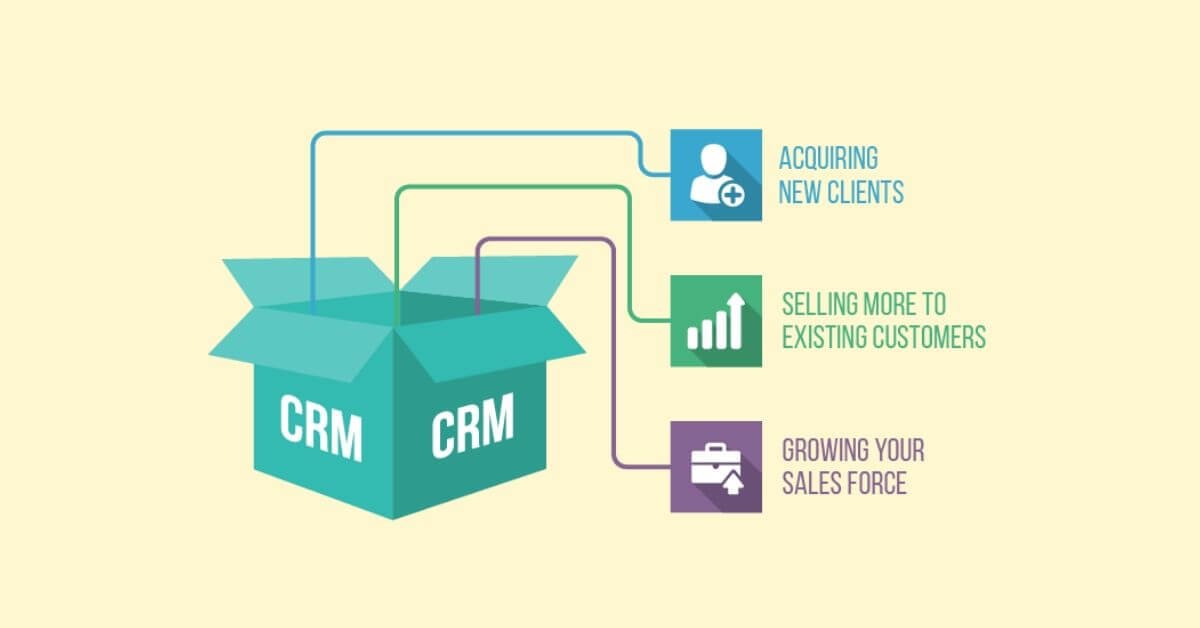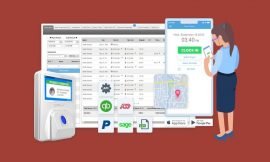A CRM platform helps companies target different audiences, set scores and alerts based on an individual lead or customer’s activity, proactively work with contacts, and maintain relationships. Best of all, a CRM system can be used across departments to ensure that all customer-facing teams are empowered with the right data to create incredible customer experiences.
CRM benefits a company in a variety of ways. While the benefits vary by department or industry, six benefits of CRM platforms that affect every user include:
1) Trustworthy Reporting
A CRM system helps you go deeper with all your data and metrics, including those from other sources. When your company is dedicated to maintaining clean data, or data free from errors, you can use your CRM platform to collate, tabulate, and organize that data, which is then easy to interpret with reporting features. This is one of the biggest benefits of a CRM system, and it trickles down to other benefits that become available once you have this usable data.
Reports are one of the most valuable benefits of CRM platforms, especially when they’re enhanced by AI. Actionable data allows you to more effectively communicate with your current audience while also making it easier to reach out to those who have shown interest in the past. These reports guide your decision-making process and are invaluable. To keep an eye on absolutely current statistics in order to make minute-by-minute or daily decisions, your company needs data visualizations at its beck and call. This is where another one of the benefits of CRM comes in: dashboards.
2) Visually Showcase Data
Using a spreadsheet to manage your company means inputting or importing data manually, figuring out what’s important, and then creating a graphical way to present this data. CRM does most of this for you. Once you’ve invested in the platform, you can take advantage of another CRM benefit, the dashboard. You can set up a dashboard for every individual in your company who has login credentials for your CRM platform
3) Personalized Outreach with Automation
Because you are continually capturing data about and insights into your audience, market, and industry, you can create more relevant, personalized messaging and outreach — in both your manual efforts and your automated campaigns. This is the advantage of dynamic content and automated messaging: You can put people who have an important similarity — for example, an interest in a niche product — into different drip campaigns.
This capability is a benefit of many CRMs and lets you set up a series of automated emails that speak to that audience specifically and are triggered by specific actions. Drip campaigns can be used throughout the sales funnel.
4) Proactive Service
In the same way that the data in your CRM platform can help automate more personalized outreach throughout the marketing funnel, it can improve a sales team’s outreach efforts or customer service’s ability to help customers. If a sales team has the knowledge of what interests a particular customer most, they or a support representative can meet the customer’s needs and solve problems more proactively.
This is a major advantage for a customer service team. With relevant data available in their dashboards and in cases, there’s no need to dig for information, so a rep can get right down to what matters. It saves everyone time and makes your potential and current customers feel important when sales and customer service are proactive and knowledgeable — plus, it can improve your bottom line through higher customer satisfaction and reduced time to resolution.
5) Efficiency Enhanced with Automation
Automation is an advantage CRM platforms offer users, and it can be seen throughout the company. Three examples include:
Cutting the time it takes to email and nurture leads with drip campaigns
Scoring leads using customer parameters you set or with built-in AI, so your teams can better prioritize which marketing qualified leads, or MQL, can transition to sales qualified leads, or SQL
Handling simple customer questions, such as the status of an order, with chatbots and other automated messaging
Marketing can spend more time creating campaigns that resonate with their audience, analyzing data, and testing different strategies based on analytics. Sales can focus on selling the right product or service to customers. Customer service agents can dedicate their time to working with customers who have questions, problems, or more complex needs. Ultimately, an efficient company can better serve its customers — that’s the greatest benefit of CRM software.
6) Simplified Collaboration
Your CRM serves as a record of conversations, interactions, needs, notes, and contact information. And if it’s cloud-based, it’s always up to date, and your teammates can easily look at its records to make decisions. Additionally, some CRM platforms have built-in collaboration tools that allow multiple people to work on one file simultaneously or follow the progress of a document, such as a sales quote.
Everyone who has access to your CRM can work together through this shared record. For example, when a salesperson speaks with a customer and learns more about them, they can fill in certain fields in that person’s record or make notes on their file. This helps make sure the rest of the team is working with the latest details and to the best of their ability. Marketing, sales, and customer service work together seamlessly instead of worrying about siloed information.
This article was originally published on Salesforce.com


